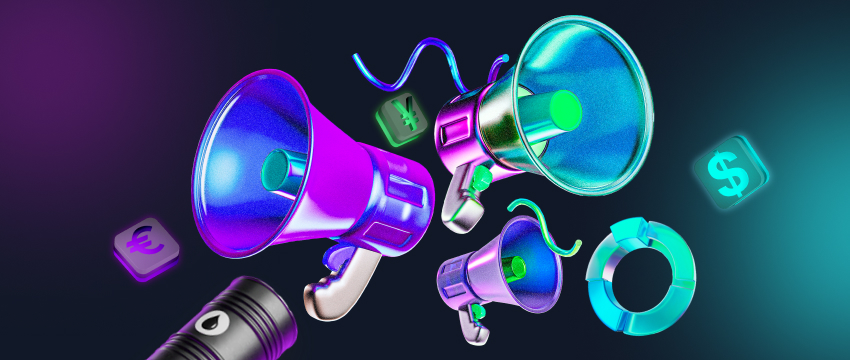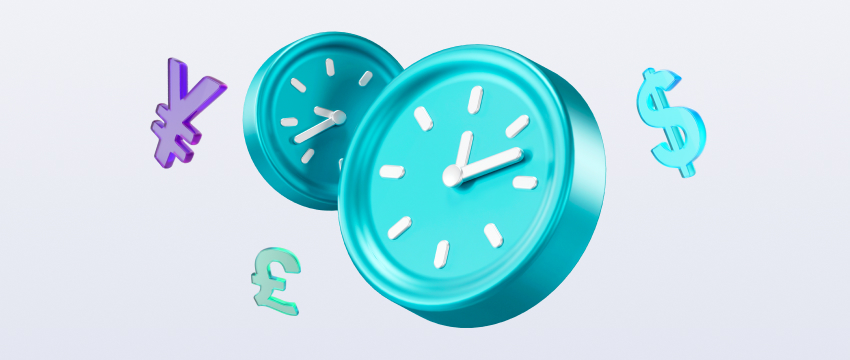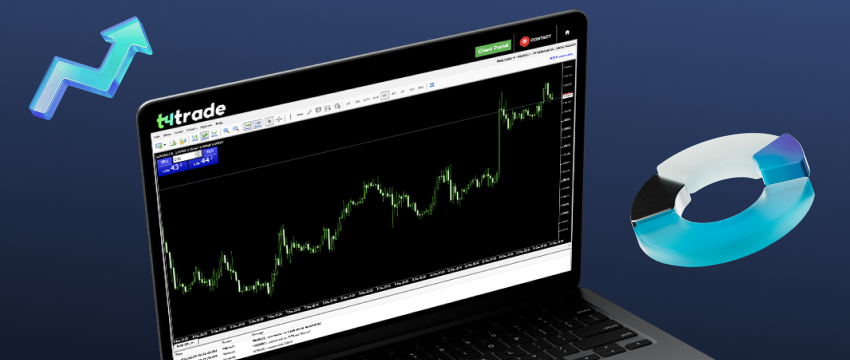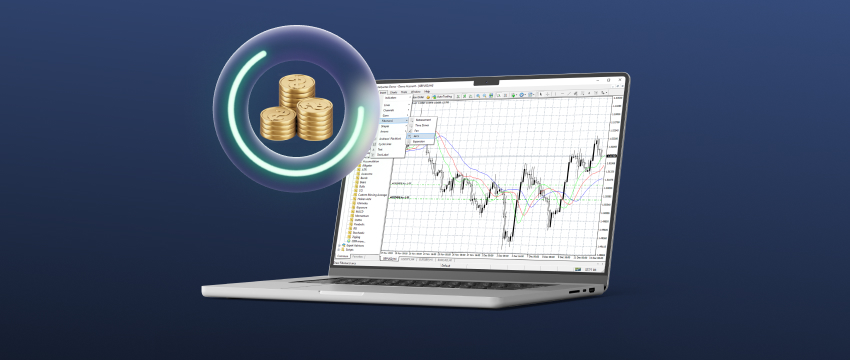Forex traders vary widely in experience levels. Some just find trying their hand at the markets exciting, while others make it their primary means of earning income. These traders also have different goals and are willing to spend different amounts of time and effort on trading.
And there is nothing wrong with keeping forex as your hobby for an indefinite period. In fact, few traders end up going full-time or even getting serious about forex at all.
However, if you want to take trading seriously, it can be difficult. Progressing through these stages requires discipline. Only a few traders manage it successfully.
The forex world can be pretty overwhelming, and the influx of information chokes out most would-be forex professionals.
This article is aimed at grouping traders into categories based on experience. These categories aren’t set in stone. It’s unreasonable to say, “Once you do X, you are a Y-level trader.”Instead, they are generalisations based on common trading experiences and spots where traders often find themselves.
The goal here is not just to say, “You’re this type of trader!” It’s to make it easier to find where your current experience is at, and what you can do next to take your forex trading to the next level. That is, provided that you wish to do so.
The Unaware Hobbyist
You are someone who has heard of trading from media, and thought it was fun. You don’t really know what’s going on, and can only grasp the basics, such as reading line charts. Perhaps you’ve made a few trades just to see. You didn’t have a specific goal in mind.
In this state, the world is your oyster, and mostly whatever knowledge you learn will help your performance significantly.
However, this is not a sustainable period for those who want to use trading as an additional source of income.
Hobbyists mostly hop on trends or rare market opportunities, and these don’t happen often. They lack the knowledge to capitalise on everyday market fluctuations, and trying to do so without proper preparation may result in losses.
The good news is that this is the easiest step to progress from. Just a couple of hours of learning can lead to significant improvements for those in this newbie stage.
Improvement Focus:
- Trading terminology
- A basic grasp of fundamental and technical analysis
- Basic market principles (speculative markets, supply and demand)
- Platform features: buy, sell, stop loss, take profit, basic navigation
- Demo account
Aspiring Learner
You’re still in the beginner stages, but you’ve decided to do things right. You’ve done some learning, but you aren’t quite sure that you’ve managed to grasp markets enough to see everyday results.
If you haven’t accessed a demo account yet, it may be a good idea to do so now, so you can practice trading without risking any real money.
In this stage, the forex world often becomes overwhelming. You’ve explored the base concepts and figured out just how much there is to learn, and that can be daunting.
Sadly, there’s no better advice than to take things slowly and focus on one thing at a time, figuring out how different concepts interact.
The value of practical learning can’t be understated at this stage. Even traders who grasp the base concepts often fail when it comes to actually putting that knowledge to the test.
In other words, traders need to both use a demo account to access real markets and make sure they have a firm grasp of what their platform can do to be able to execute their strategies.
Improvement Focus:
- Common trading strategies: デイトレード, swing trading, position trading
- Platform capabilities: charts, timeframes, basic indicators, and visual objects
- When to enter and exit trades, P/L ratios
- Practical experience through trading on a demo account
- The most common tools used in fundamental (news, economic calendars) and technical (RSI, MA, Bollinger Band indicators)
The (Un)Prepared forex newbie
You’ve grasped the basics, and trades on your demo account are showing some results. This is a big step forward, and you’ve gained some confidence and are nearly ready to move on from your demo onto real markets.
However, your trades may still feel disconnected. You may not have an overall plan, and still feel like there’s some randomness in your decisions. This is a time when traders should start to strategise more thoroughly.
The main step here is to make a trading strategy. This means connecting your trades into an overall plan, rather than just placing individual trades and seeing how they are going. This has two primary benefits.
One, it makes it easier to go about your trading routine. You don’t have to search all assets and see where opportunities arise; you already know what you are looking for.
Two, it lets you take a more structured approach, making trading results more consistent across the board, which is almost necessary if you intend to go full-time.
Improvement Focus:
- Creating a trading strategy based on one of the most common ones: day trading, swing trading, or position trading
- Curating a list of currency pairs that you are comfortable trading and that suit your strategy (for example, major and minor pairs fit scalpers due to low spreads and high liquidity)
- Entry and exit rules
- Basics of risk management, setting stop losses and take profits
- Specific P/L goals
- Creating a trading routine, determining when you’ll trade, for how long, and when you’ll stop if you don’t feel well

The stressed forex beginner
Once you’ve gone through the steps in the last segment, you feel ready to access real markets. Only, your trades aren’t going as well as on your demo account. The conditions are slightly different since the trading environment is no longer simulated, but that’s unlikely to be the crux of the issue.
You start feeling stress, negative emotions well up, and trading becomes much more fatiguing. You may start to wonder whether you’ve got what it takes.
This is when most traders hit a wall and sadly, few manage to go over it. The silver lining is that, if you’re feeling doubtful of your abilities, almost every other trader has been there as well. And if there are at least some that managed to go further, so can you.
The issue here likely isn’t your trading strategy, but rather your natural response when you’re risking your own money. Greed and fear are powerful emotions in trading, and when traders aren’t careful, these can completely take them over without them even noticing.
So, the key here isn’t finding a better strategy, trading for longer, or being more focused, but rather emotional regulation.
Improvement Focus:
- Avoiding emotional trading: exiting positions early out of fear, staying too long out of greed、そして chasing losses
- Following your trading strategy even when you feel your emotions starting to get the better of you – if it worked on your demo, it should work in the real market
- Keeping a trading journal: marking your emotional state and reasoning for each trade helps you recognise emotional trading patterns and makes it easier to start working on them
- 危機管理: most emotions come from a fear of what might happen; controlling that with smart risk management can help quell that irrational behaviour
- Careful use of leverage
The confident forex trader
Here’s when things start turning around. You start getting more in tune with your trading emotions, and things start looking up. Your trades are consistent, your strategy is working, and you finally stop feeling like a foreigner when you open your platform.
This is where it becomes difficult to give advice on where to move forward. Since traders at this stage already know their preferences, only they themselves can determine what the next correct move is.
Perhaps it’s exploring other strategies or markets, perhaps it’s introducing new tools, or maybe it’s honing the current strategy to perfection.
The main threat here is overconfidence. Traders may become too complacent in the market and forget about how quickly it turns. They start trading recklessly and forgetting to manage risk, which can lead to catastrophic losses.
Improvement Focus:
- Not getting overconfident
- Exploring trading tools and methods: copytrading, algo trading, VPS, PMAM
- Exploring additional asset classes via CFDs
- Exploring analysis tools: TradingView, Trading Central, backtesting
- Adding custom features to your platform to enhance your trading

The forex full-timer
You’re calm and collected on the market, your trading routine feels just like that: a routine rather than something you have to work hard at.
This is the final stage, and one we can’t give you any real advice for other than trying to find holes in your game and fixing them. If you’ve made it here, congratulations, you’re one of the few.
Disclaimer: This material is for general informational and educational purposes only and should not be considered investment advice or an investment recommendation. T4Trade is not responsible for any data provided by third parties referenced or hyperlinked in this communication.




